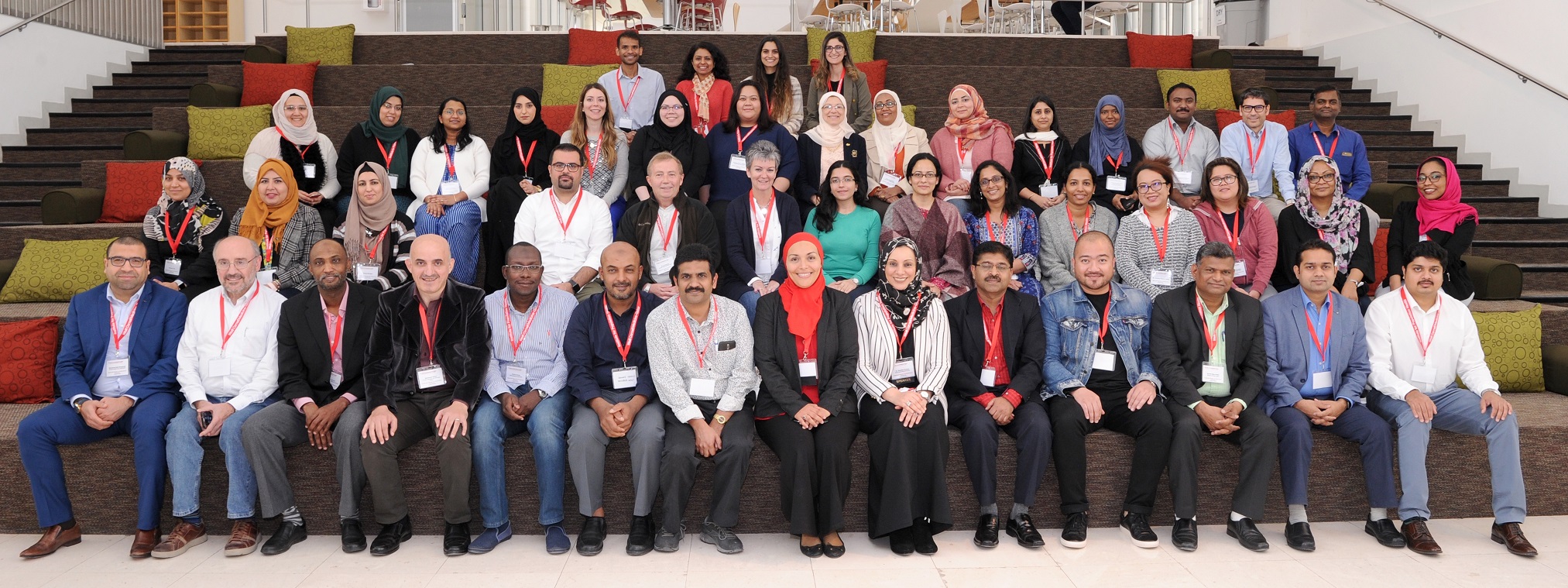WCM-Q systematic review workshop boosts scientific rigor in medical research
 The WCM-Q systematic review workshop drew participants from the fields of healthcare, research and education.
The WCM-Q systematic review workshop drew participants from the fields of healthcare, research and education.
Healthcare professionals from across Qatar convened at Weill Cornell Medicine-Qatar (WCM-Q) for a workshop that explained how to optimize the rigor and reliability of medical research.
The workshop focused on a branch of academic research called systematic review, whereby investigators synthesize and analyze large quantities of existing research on a particular subject in one paper. When performed correctly, systematic reviews in the medical field provide researchers, healthcare practitioners and policy makers with useful resources to quickly and efficiently gain an accurate understanding of a particular healthcare issue. They can then identify avenues for further research or implement new healthcare practices or policies to improve patient outcomes based on the available evidence.

In total, 44 physicians, nurses, pharmacists, researchers, educators and other healthcare professionals participated in the workshop, which was developed and implemented by WCM-Q’s Institute for Population Health (IPH).
Dr. Karima Chaabna, Population Health and Communication Specialist at IPH said: “Because it synthesizes and critically analyzes large amounts of research, systematic review actually gives us a better evidence base for empirically grounded healthcare practice rather than viewing individual studies does. There is one important caveat, however, which is that in order for a systematic review to be useful it must be conducted with absolute rigor and transparency. This workshop demonstrated how this can be achieved by following an established, high-quality methodology.”
Participants at the workshop first took part in a pre-assessment survey to identify their current knowledge of systematic review, before Dr. Sohaila Cheema, IPH Director and Assistant Professor of Healthcare Policy and Research, and Dr. Karima Chaabna gave an introductory presentation of the subject. Subsequent presentations and interactive activities demonstrated how to write a protocol for a systematic review, how to search and screen literature, how to systematically collect and extract data, how to assess the quality of studies and identify risks of bias, and how to synthesize and report a systematic review. IPH Projects Specialist Dr. Amit Abraham also gave a presentation, while Projects Coordinator Aida Tariq Nasir and Projects Specialist Sonia Chaabane, along with the rest of the IPH team, facilitated the workshops in conjunction with the presenters.
Dr. Cheema said: “By following the established methodology for critically synthesizing existing studies and reporting their findings, participants will be able pursue their own systematic review projects. This will enable them to make valuable contributions to the ongoing process of continual improvement in healthcare and population health, for the benefit of patients and communities, and at the population level, both here in Qatar and beyond.”
The workshop, which was fully subscribed, will be offered again in September. The event was accredited locally by the Qatar Council for Healthcare Practitioners-Accreditation Department (QCHP-AD) and internationally by the Accreditation Council for Continuing Medical Education (ACCME).
Dr. Ravinder Mamtani, Professor of Healthcare Policy and Research and Senior Associate Dean for Capacity Building and Population Health at WCM-Q, said: “This workshop has been designed to equip healthcare professionals in Qatar with the skills and knowledge necessary to conduct high-quality systematic reviews that meet the very high standards of rigor demanded of academic research. We are extremely happy that so many joined us for this important learning experience.”